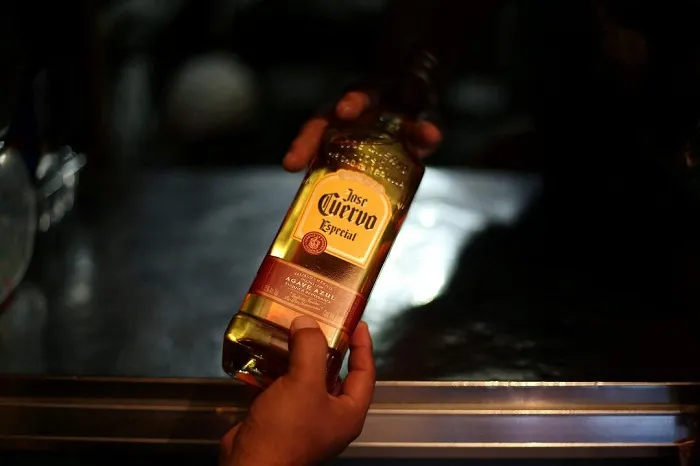Tequila in Mexico is regulated by the Tequila Regulatory Commission (CRT). Under CRT rules, 100% blue Weber agave tequila may include up to 1% additives without declaring them on the label. The four approved additives are glycerine, caramel coloring, oak extract, and syrup (jarabes). These ingredients help standardize color, mouthfeel, and taste.
Jose Cuervo Calls for Transparency
José Cuervo, the world’s largest tequila producer, has spoken out on the “additive-free” debate. Lander Otegui, executive vice president of marketing and innovation at Proximo Spirits, José Cuervo’s parent company, said consumers now expect clarity. “Transparency is the way to go,” he said. He noted that additives exist in many spirits, such as Scotch, rum, and cognac, not only in tequila.
Otegui stressed that additives do not replace aging. He explained that Reposado, Añejo, and Extra Añejo tequilas must age for at least three months, one year, and three years, respectively. Additives only balance differences from barrel to barrel. He added that caramel coloring, which he says is flavorless, ensures a consistent look on the shelf. Consistent color helps protect consumers from counterfeit products.
CRT and PROFECO Restrict “No Additives” Claims
In August 2024, the CRT and Mexico’s consumer protection agency PROFECO warned against “no additives” labels on tequila. They said such claims mislead buyers and violate the Tequila NOM standards. PROFECO ordered brands to clear or cover any “no additives” text on their labels. The CRT fined or forced changes on several brands, including Mijenta and Patrón, over this issue.
Industry Perspectives on Additives
Some distillers argue additives are harmless and long-standing. Otegui said they merely enhance flavor and stability. He called fears about “cutting corners” exaggerated. He noted that Proximo still offers additive-free Blanco tequilas made only with agave, yeast, and water.
Critics of additives stress craft and purity. They worry hidden ingredients dilute agave’s natural character. But Otegui countered that proof requires rigorous batch testing, which few brands conduct. He said many “no additives” claims lack lab verification.
Impact on Producers and Agave Farmers
Otegui framed the debate as more than a label dispute. He highlighted Proximo’s long-term agave contracts. His company grows much of its own agave and supports farmers year-round. He contrasted this with smaller brands that buy agave at spot prices and then rebrand.
“These quick-flip brands may harm farmers and distilleries,” he said. “We care about this land and these people. We’ve made tequila for over 250 years.” He argued that big producers drive the category’s growth, invest in communities, and protect sustainability.
Market Trends and Additive-Free Narrative
According to Nielsen data cited by Proximo, brands without an additive-free focus drove nearly 90% of tequila’s growth over the past year. José Cuervo’s net sales rose 9.9% in Q1 2025, though volume fell 3.9%. Otegui said additive-free brands are losing share. He believes the debate remains niche and that long-term success depends on transparency, community support, and environmental stewardship.
Related Topics


